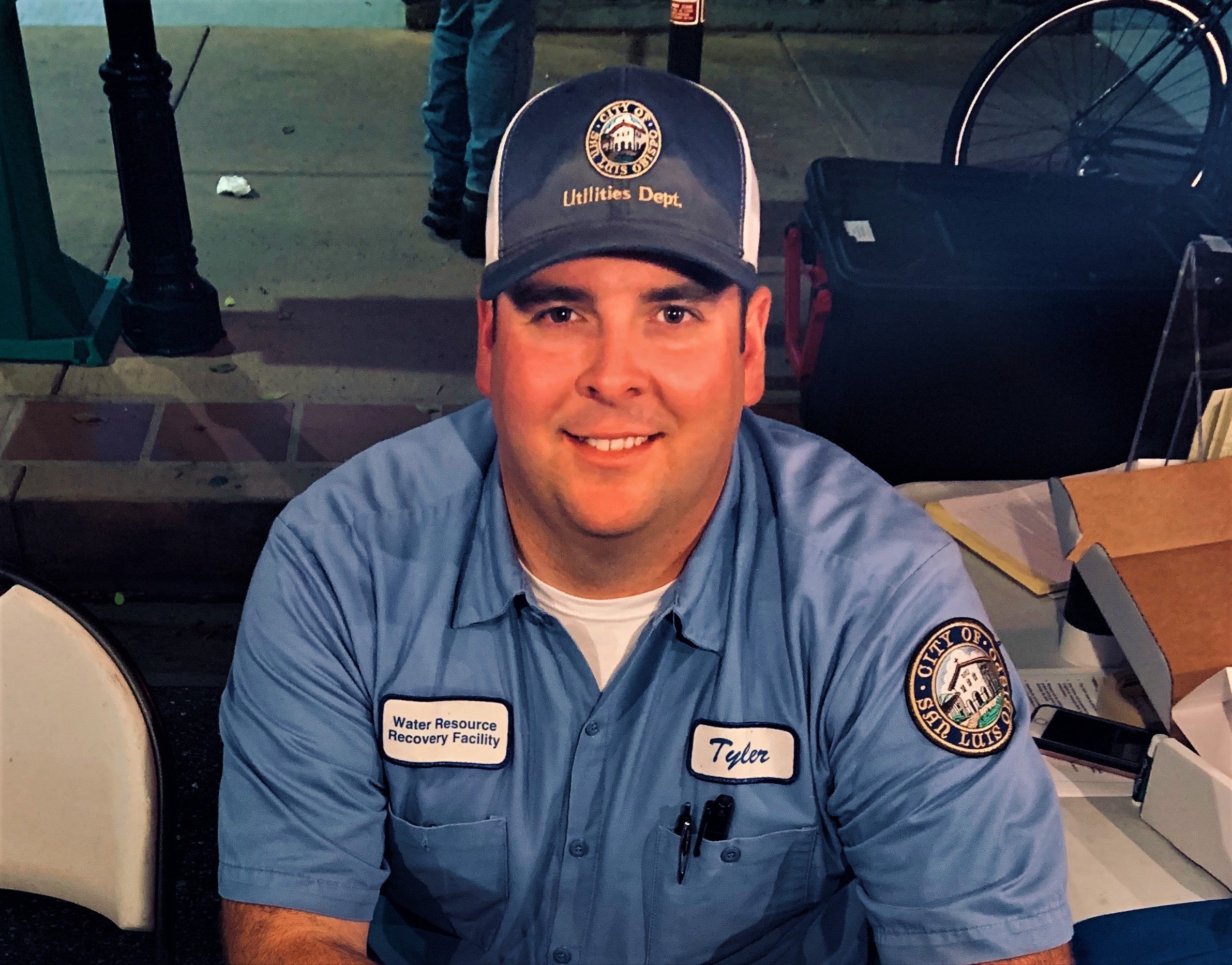The Advanced Water Treatment Operator Certification was developed by water professionals, for water professionals and jointly administered by CA-NV AWWA and CWEA.
Professional certification is different than a training or educational program. Training programs offer a certificate of attendance when an individual completes the coursework, but they do not generally award a credential or require ongoing recertification.
The AWTO® certification program was developed using a nationally recognized process to define the roles and responsibilities for water treatment. Individuals who meet the eligibility requirements and pass the exam are granted use of the AWTO credential.

Tyler Lee, Water Reuse Recovery Facility Operator with the City of San Luis Obispo
CWEA interviewed Tyler Lee, Water Reuse Recovery Facility Operator with the City of San Luis Obispo, who holds an AWTO Grade 3 certification. Learn how you can get certified at awtoperator.org.
What / who inspired you to work in water?
From an early age, I had an interest in water and wastewater treatment. When we turn on the tap, water comes out—how does it all work? When we flush, it magically disappears—where does it go? I was intrigued with the process and had to know more.
What fuels your passion for your work?
The fact that we, as operations professionals, are making a difference in people’s lives is pretty special. We’re on the front lines of environmental protection and protection of public health. It’s also not a “normal” job, so it’s always pretty funny to see people’s reactions when I tell them what I do for work.
Are you certified in water and wastewater?
I’m certified in water and wastewater. Wastewater Treatment Grade IV, Wastewater Collection Grade 2, Water Treatment Grade 2, Water Distribution Grade 2, Advanced Water Treatment Grade 3.
Does your agency require AWTO certification?
My agency does not require AWTO certification.
Why did you pursue AWTO certification?
I pursued AWTO certification because I feel it is the direction in which the industry is heading. One can only speculate, but with technological advancements, direct potable reuse will likely be something that I see during my career and having certification in an applicable field is important.
Describe the training you needed.
I used the knowledge and experience I’ve gleaned throughout my career, as well as training manuals from CWEA, WEF, and the Southwest Membrane Operator Association.
What tips can you provide for someone interested in pursuing their AWTO but their agency does not do AWTO.
Education and certification are the two most important tools we have as operations professionals. If your agency doesn’t require AWTO certification, you will stand out for becoming certified. Having more education and certification will make you a more well-rounded operator and open the door to future opportunities that may be presented.
AWT Operators protect public health by ensuring a supply of safe and high-quality drinking water from advanced water reuse facilities.
The minimum qualifications to apply for the exam are:
There are currently three AWTO grade levels and a typical career ladder:
We offer a voluntary certification for water professionals that is in addition to your California or Nevada Water Treatment or Wastewater Treatment Operator certification.